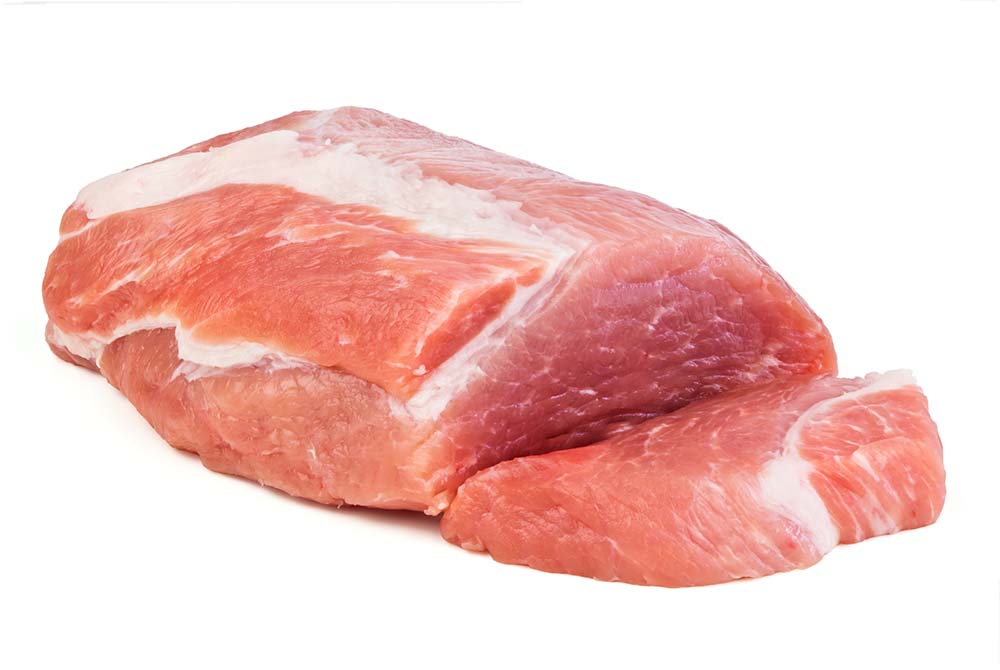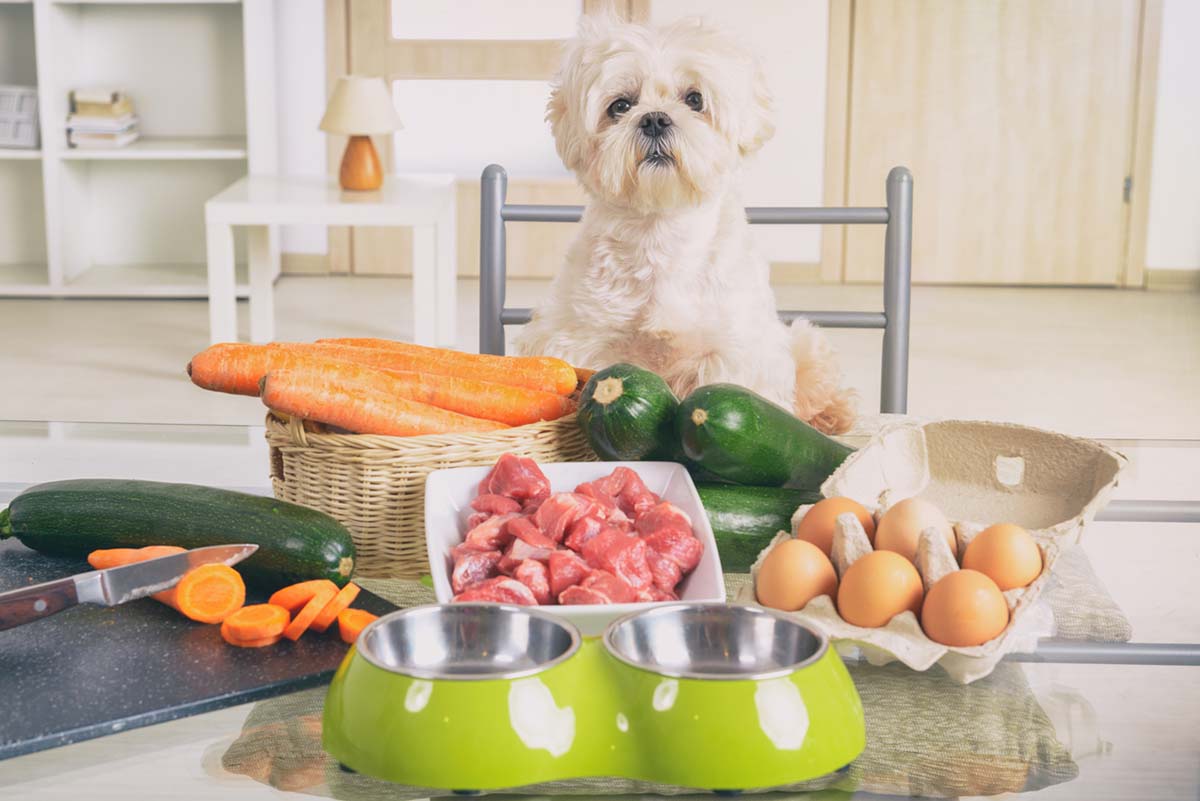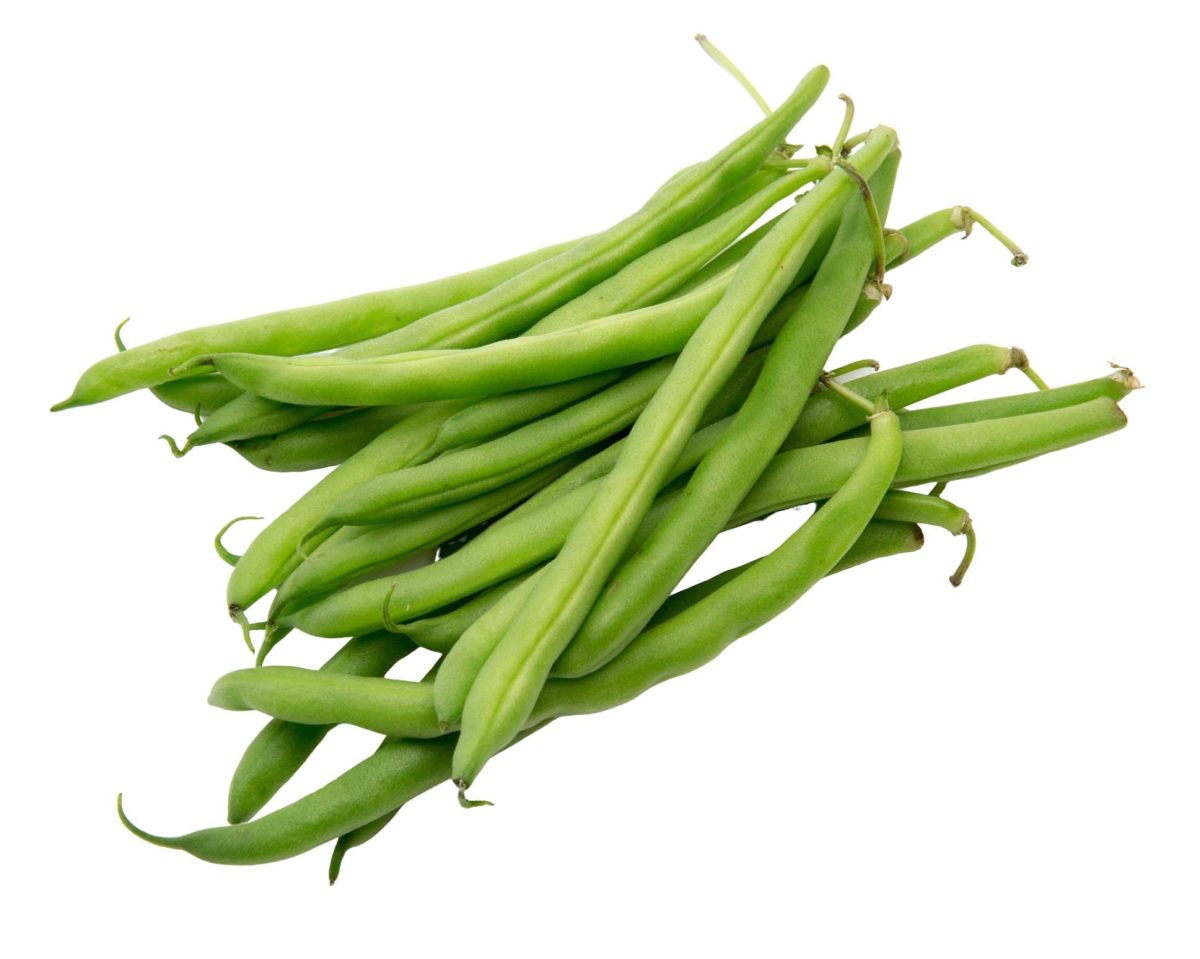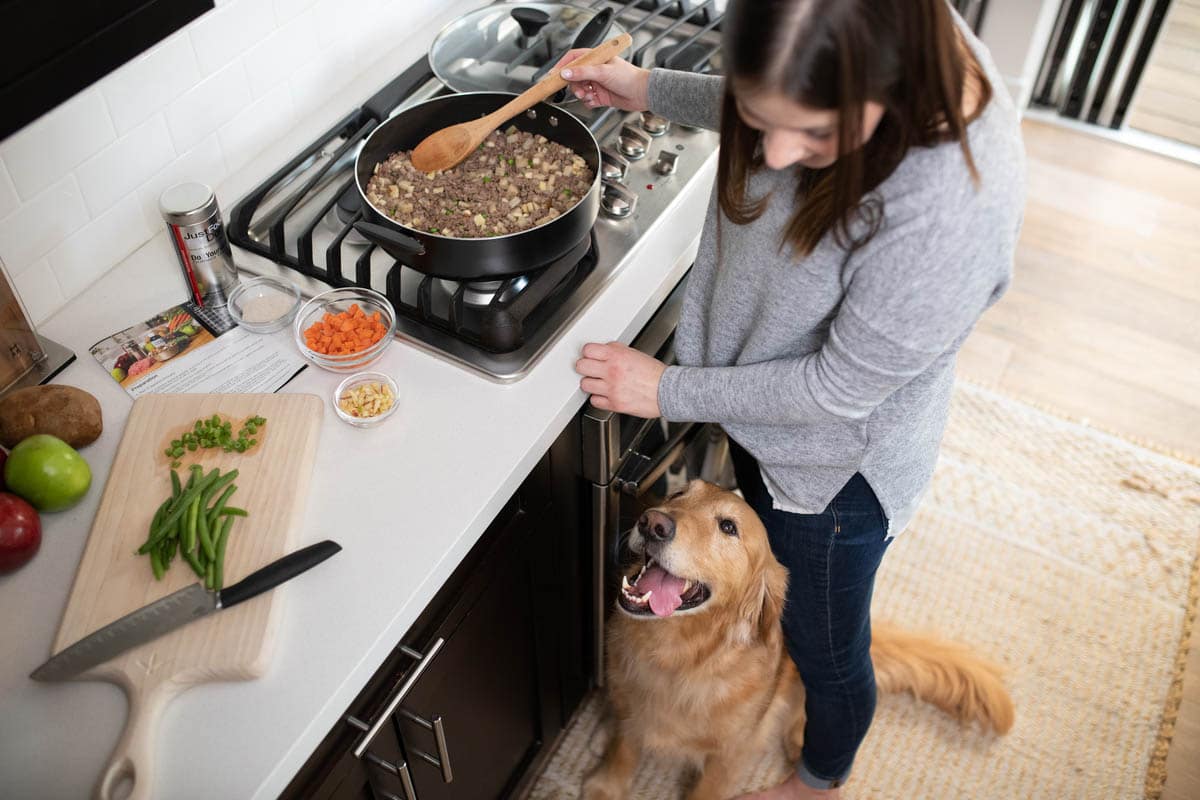Raw Dog Food Is a Public Health Issue
Raw dog food has become an increasingly popular diet in recent years. However, veterinarians, the CDC, and the AVMA warn about the risks to pet and human health.
Raw dog food has become an increasingly popular diet in recent years. However, many dog owners ignore veterinarians, the Center for Disease Control (CDC), and the American Veterinary Medical Association’s (AVMA) warnings about the risks to their pet’s health — and theirs.
Unfortunately, some pet owners catch on to this trend from social media before obtaining objective information from reputable sources. Here’s why we think pet parents should think twice before considering a raw food diet or feeding dogs raw meat.
1. Raw food can be dangerous to dogs and their owners.
“It has been well-documented that both commercial raw pet foods and raw meats sold for human consumption have high rates of contamination with dangerous bacteria, many of which are antibiotic-resistant,” writes Tuft School of Veterinary Medicine’s Cailin R. Heinze, VMD, MS, DACVIM (Nutrition).
Raw diets (even freeze-dried and air-dried) can contain harmful bacteria and pathogens, such as Salmonella, E. coli, and Listeria. These bacteria can cause food poisoning in dogs and their owners, which can lead to serious illness, hospitalization, and even death. Pets and people with weakened immune systems are especially at risk.
A 2019 study by the Centers for Disease Control and Prevention (CDC) found that raw pet foods were responsible for an outbreak of Salmonella that sickened 150 people in 25 states. The outbreak was linked to pig ear dog treats, which were contaminated with Salmonella.
Bacterial contamination is no joke! In another study, researchers found that children who lived in households with dogs that ate raw diets were more likely to be hospitalized for Salmonella infection than children who lived in households with dogs that did not eat raw diets.
2. There is no scientific evidence that raw diets are beneficial to a dog’s health.
There is no evidence that proves the benefits of feeding raw, but there is evidence of the health risks. Multiple studies in peer-reviewed scientific journals report contamination in animal-source proteins.
Despite a gross lack of scientific evidence to support the supposed health benefits of raw diets, proponents downplay the reported risks.
3. Raw food diets for dogs can be unbalanced and lead to nutritional deficiencies.
Imbalances in raw diets may not provide all the nutrients that dogs need. This is because raw diets are often made up of only a few different ingredients, such as meat, bones, and vegetables.
A balanced diet for dogs should include a variety of nutrients, including protein, fat, carbohydrates, fiber, vitamins, and minerals. Raw diets may not provide enough of these nutrients, which can lead to nutritional deficiencies in your furry family member.

4. Raw diets pose a risk of cross-contamination.
Raw diets can be difficult to prepare, especially if you are not familiar with food safety practices. It is important to properly handle and store raw meat and bones to prevent the spread of harmful bacteria.
Cross-contamination can occur when raw meat or bones come into contact with other foods or surfaces. This can happen if you do not wash your hands thoroughly after handling raw food, or if you do not properly clean and disinfect your kitchen utensils and surfaces.
5. Major organizations, veterinary nutritionists, and other veterinary professionals warn against it.
The CDC, FDA, AVMA, as well as numerous reputable veterinary schools, do not recommend raw food diets for pets.
6. Raw diets are not necessary for dogs.
Again, there is no scientific evidence that raw diets are healthier for dogs than kibble. Some may argue it’s more ‘natural’ because it’s what wolves eat, or what their ancestors ate in the wild, but the lifespan of a wolf is less than half that of a domesticated dog.
Simply put: the nutritional needs of a house pet are not the same as those of a wild animal.
Other risks
- Raw diets can contain parasites, such as tapeworms and roundworms. These parasites can cause serious health problems in dogs, such as diarrhea, vomiting, and weight loss.
- Raw diets can be contaminated with toxins, such as heavy metals and pesticides. These toxins can also cause serious health problems in dogs.
- Feeding dogs raw diets can be a choking hazard. Bones and other hard objects can break off and cause blockages in the dog’s digestive tract.
- Raw bones can cause dental problems in dogs. The meaty bones and raw food can wear down the dog’s teeth and cause gum disease.
Proceed with caution
If you are considering feeding your dog a raw diet, it is important to talk to your veterinarian first. Your veterinarian can help you determine if raw or biologically appropriate raw food (aka Ian Billinghurst’s BARF diet using muscle meat and organ meats) is right for your dog. They can also give guidance on how to safely prepare and feed a raw diet at home.
It’s great if you want to make your dog’s food at home with high-quality ingredients from the grocery store instead of a commercial diet — as long as it’s cooked meat and you are 100% sure it’s complete and balanced nutrition.
JustFoodForDogs makes homemade diets for dogs easy with DIY kits and vet-approved recipes. If you don’t want to go back to dry dog food and processed foods, try fresh dog food (whose benefits do have scientific evidence). Fresh food is gently cooked at a safe temperature to preserve nutrients.
In conclusion, there are a number of reasons why pet owners should not feed their dogs raw meat diets. Raw diets can cause foodborne illness, they can be unbalanced and lead to nutritional deficiencies, they can be difficult to prepare and pose a risk of cross-contamination, and they are simply not necessary for domesticated dogs.
If you are considering feeding your canine companion a raw diet or letting them eat raw meat, talk to your veterinarian first and know the potential risks of uncooked meat.
This content is for informational use only and does not replace professional nutrition and/or medical advice, diagnosis, or treatment. It is not a substitute for and should not be relied upon for specific nutrition and/or medical recommendations. Please talk with your veterinarian about any questions or concerns.
“Nutrition | Cummings School of Veterinary Medicine.” n.d. Vet.tufts.edu. https://vet.tufts.edu/foster-hospital-small-animals/specialty-services/nutrition.
Davies, R. H., J. R. Lawes, and A. D. Wales. 2019. “Raw Diets for Dogs and Cats: A Review, with Particular Reference to Microbiological Hazards.” Journal of Small Animal Practice 60 (6): 329–39.
“Did You Know?” n.d. https://www.cdc.gov/healthy-pets/media/pdfs/raw-pet-food-p.pdf.








